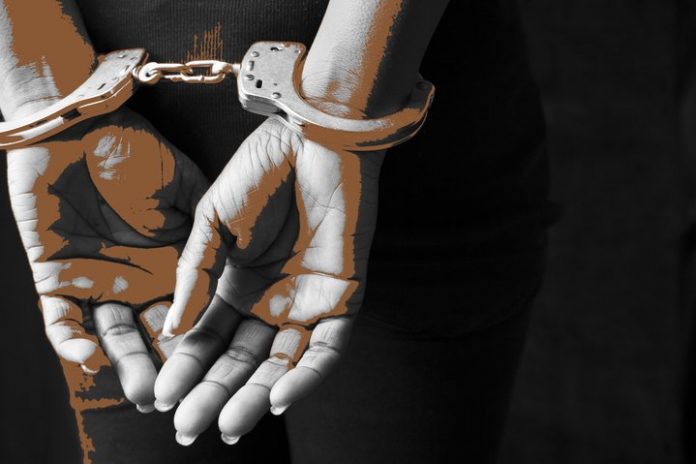New York City cops constrained a 27-year-elderly person to conceive an offspring while shackled to a healing facility bed, infringing upon state law, as indicated by a claim recorded Thursday.
The lady, who requested to be recognized in the grumbling just as Jane Doe, was captured on Feb. 7, 2018, on a wrongdoing accusation identified with a family question. She was nine months pregnant. Inside hours, she started giving birth inside a police holding cell.
NYPD officers transported her to Montefiore Medical Center in binds. When she arrived, an officer put overwhelming shackles on her feet, fastening her lower legs together.
Specialists who aided the lady’s work asked NYPD officers to evacuate the shackles for the wellbeing of the mother and child, the protestation states and educated them that the training was infringing upon state law.
Under New York enactment go in 2015, it is unlawful to shackle a detained lady at any phase of her pregnancy or in the two months following conveyance.
The officers cannot, expressing that they were following methodology from the NYPD watch control, which they accepted supplanted state law, as indicated by the objection.
Ten minutes previously the lady conveyed her little girl, officers at long last unshackled her lower legs and one of her wrists. She conceived an offspring with one wrist anchored to the clinic bed.
Soon after conveyance, her lower legs were shackled once more, the suit states, and the lady attempted to bolster her infant with just a single arm free.
She gave birth in chains, in a way that made her feel like a dangerous criminal.
Ashok Chandran, an attorney for the woman
The lady is looking for harms for an infringement of her social liberties, and in addition changes to NYPD approaches to guarantee pregnant ladies are not shackled later on.
“She conceived an offspring in chains, in a way that made her vibe like a risky criminal,” Ashok Chandran, one of her lawyers, told HuffPost. “She keeps on having bad dreams. She recollects the dread and nervousness she felt when specialists were stating this was a genuine hazard to her and her youngster.”
Medicinal specialists are in understanding that shackling pregnant ladies present genuine threats to both the mother and youngster. Shackles make it troublesome for ladies to move into various positions while in labor and can obstruct the capacity of medicinal staff to carry out their activity. The American College of Obstetricians and Gynecologists says the utilization of restrictions on pregnant detained ladies may “bargain human services as well as is disparaging and seldom essential.”
Twenty-two states and the District of Columbia have passed enactment to boycott or limit the utilization of shackles on imprisoned ladies. A criminal equity change bill upheld by President Donald Trump, the First Step Act, would boycott the shackling of ladies at government offices amid pregnancy, work and baby blues recuperation.
The lady had wanted to convey her child at the Bronx Lebanon Hospital under her obstetrician’s consideration, with her accomplice close by, Chandran included.
“She was denied both those things,” he said.
He said his customer conveyed the suit since she needed to ensure that the NYPD pursues state law and that no other ladies need to encounter the injury that she did.
The NYPD declined to remark on a pending case. In an announcement, the New York City Law Department, which speaks to the city and its offices, said it was looking at the claims “deliberately.”
Shackling is a dehumanizing, cruel and pointless practice that has no place in New York City in 2018.
“This is a civil rights case about the egregious failure of the NYPD to protect the health, safety, and dignity of a woman at one of the most important and vulnerable moments of her life,” the suit reads. “Shackling is a dehumanizing, cruel and pointless practice that has no place in New York City in 2018.”
In an affidavit filed with the Federal District Court in Manhattan, the woman explained that she wants to remain anonymous because the experience humiliated her.
She said she hadn’t told many friends or family members about what happened.
“I’m embarrassed, and don’t want people to think about me like that,” she wrote.
She also feared that she might face retaliation from the NYPD officers if she was identified.
“I don’t want my name to be forever associated with this traumatic event,” she wrote. “I want to shield my child from this for as long as possible.”










